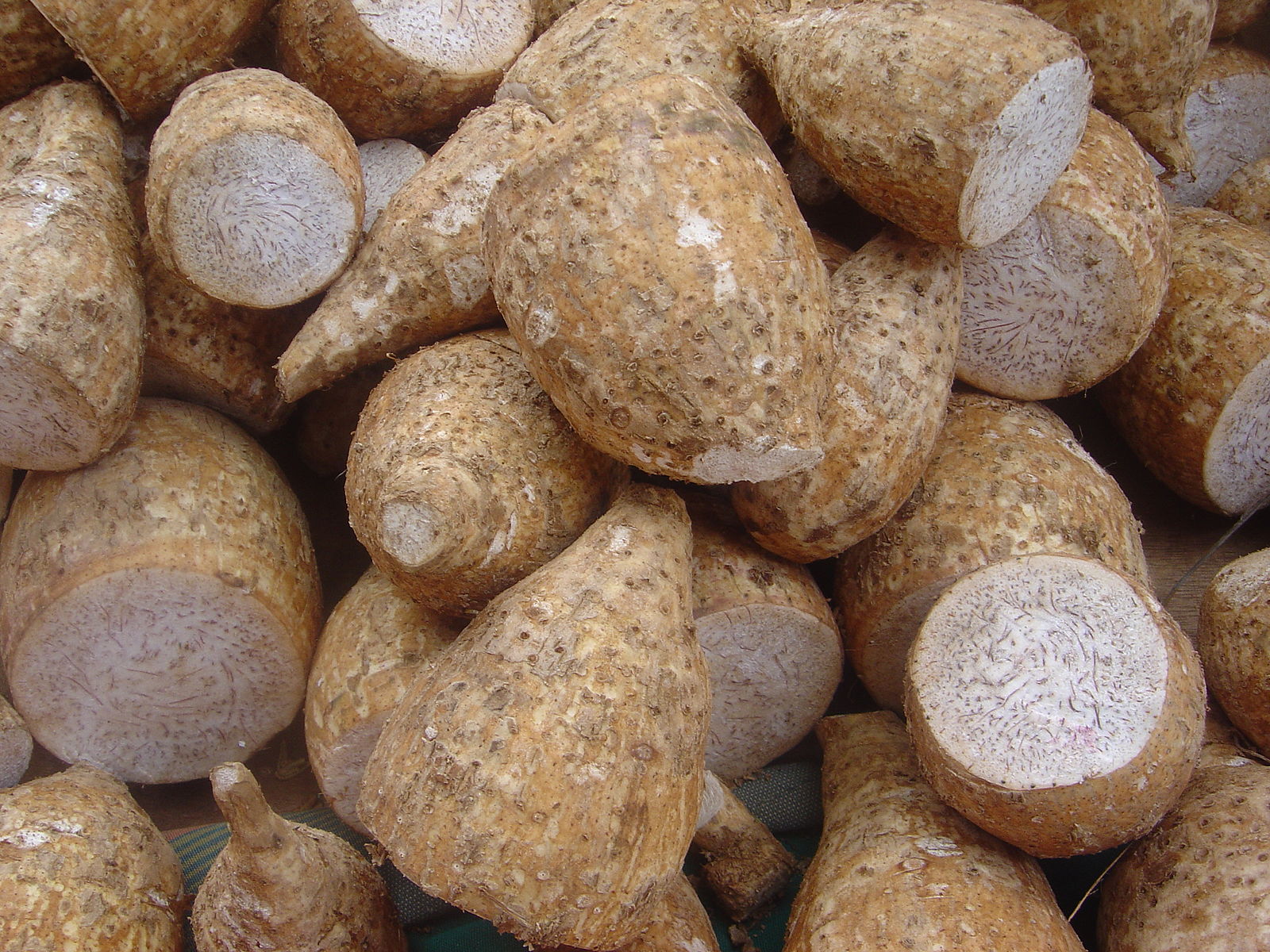Nutritional Benefits
Ginger
Raw ginger is 79% water, 18% carbohydrates, 2% protein, and 1% fat (table). In 100 grams (a standard amount used to compare with other foods), raw ginger supplies 333 kilojoules (80 kilocalories) of food energy and contains moderate amounts of vitamin B6 (12% of the Daily Value, DV) and the dietary minerals, magnesium (12% DV) and manganese (11% DV), but otherwise is low in micronutrient content (table). When used as a spice powder in a common serving amount of one US tablespoon (5 grams), ground dried ginger (9% water) provides negligible content of essential nutrients, with the exception of manganese (70% DV)
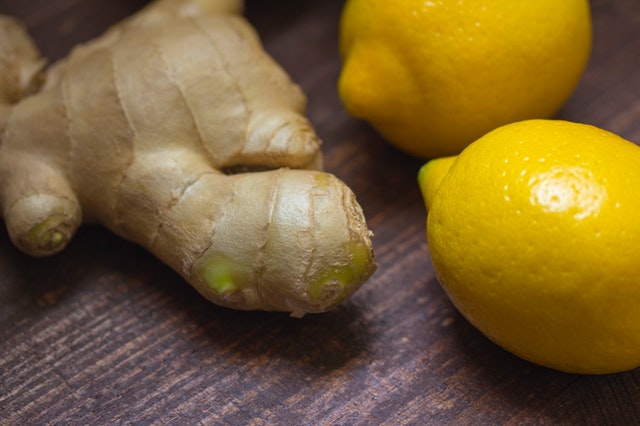
Beet
Raw beetroot is 88% water, 10% carbohydrates, 2% protein, and less than 1% fat (see table). In a 100-gram (3+1⁄2-ounce) amount providing 180 kilojoules (43 kilocalories) of food energy, raw beetroot is a rich source (27% of the Daily Value - DV) of folate and a moderate source (16% DV) of manganese, with other nutrients having insignificant content (table).[18]
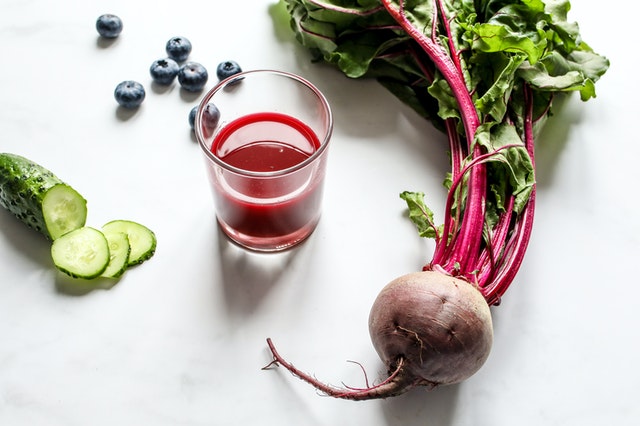
Carrot
Raw carrots are 88% water, 9% carbohydrates, 0.9% protein, 2.8% dietary fiber, 1% ash and 0.2% fat.[72] Carrot dietary fiber comprises mostly cellulose, with smaller proportions of hemicellulose, lignin and starch.[68] Free sugars in carrot include sucrose, glucose, and fructose.[72] The carrot gets its characteristic, bright orange colour from β-carotene, and lesser amounts of α-carotene, γ-carotene, lutein, and zeaxanthin.[73] α- and β-carotenes are partly metabolized into vitamin A,[74][75] providing more than 100% of the Daily Value (DV) per 100 g serving of carrots (right table). Carrots are also a good source of vitamin K (13% DV) and vitamin B6 (11% DV), but otherwise have modest content of other essential nutrients (table).[72]
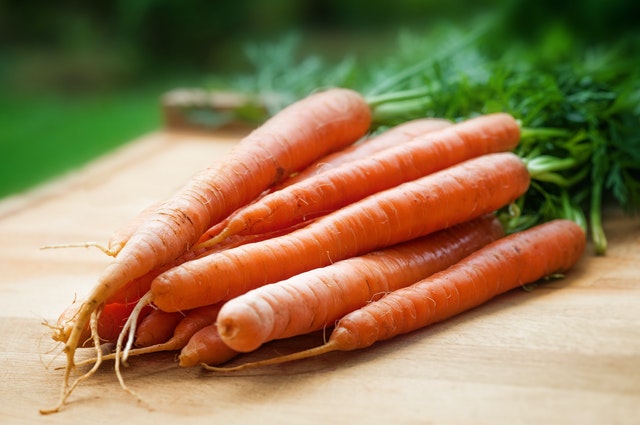
Radish
In a 100-gram (3+1⁄2-ounce) reference serving, raw radishes provide 66 kilojoules (16 kilocalories) of food energy and have a moderate amount of vitamin C (18% of Daily Value), with other essential nutrients in low content (table). A raw radish is 95% water, 3% carbohydrates, 1% protein, and has negligible fat.
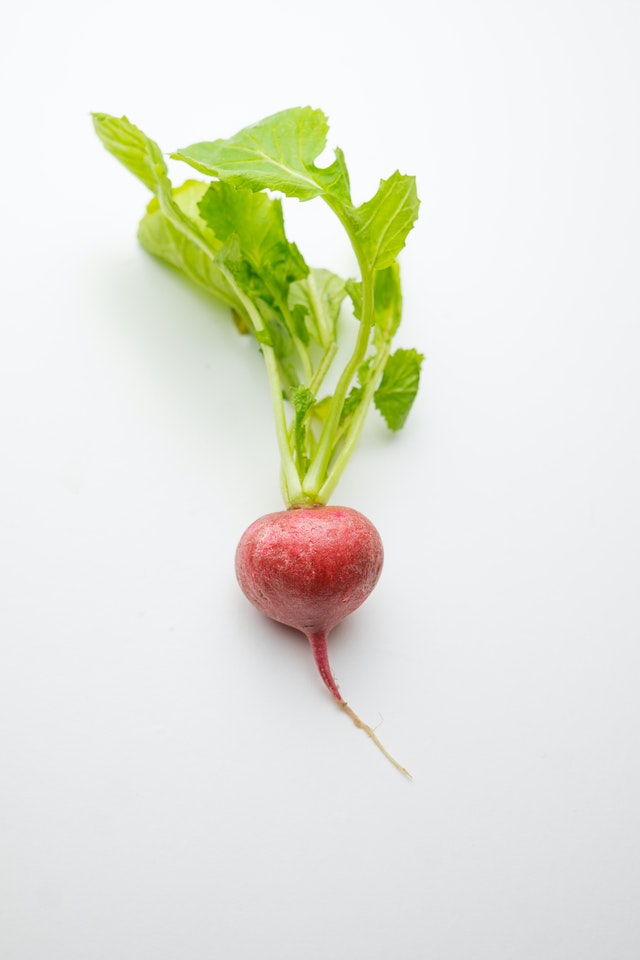
Potato
According to the United States Department of Agriculture, a typical raw potato is 79% water, 17% carbohydrates (88% is starch), 2% protein, and contains negligible fat (see table). In a 100-gram (3+1⁄2-ounce) portion, raw potato provides 322 kilojoules (77 kilocalories) of food energy and is a rich source of vitamin B6 and vitamin C (23% and 24% of the Daily Value, respectively), with no other vitamins or minerals in significant amount (see table). The potato is rarely eaten raw because raw potato starch is poorly digested by humans.[58] When a potato is baked, its contents of vitamin B6 and vitamin C decline notably, while there is little significant change in the amount of other nutrients.[59] Potatoes are often broadly classified as having a high glycemic index (GI) and so are often excluded from the diets of individuals trying to follow a low-GI diet. The GI of potatoes can vary considerably depending on the cultivar, growing conditions and storage, preparation methods (by cooking method, whether it is eaten hot or cold, whether it is mashed or cubed or consumed whole), and accompanying foods consumed (especially the addition of various high-fat or high-protein toppings).[60] Consuming reheated or pre-cooked and cooled potatoes may yield a lower GI effect due to the formation of resistant starch.[60] In the UK, potatoes are not considered by the National Health Service (NHS) as counting or contributing towards the recommended daily five portions of fruit and vegetables, the 5-A-Day program.[61]
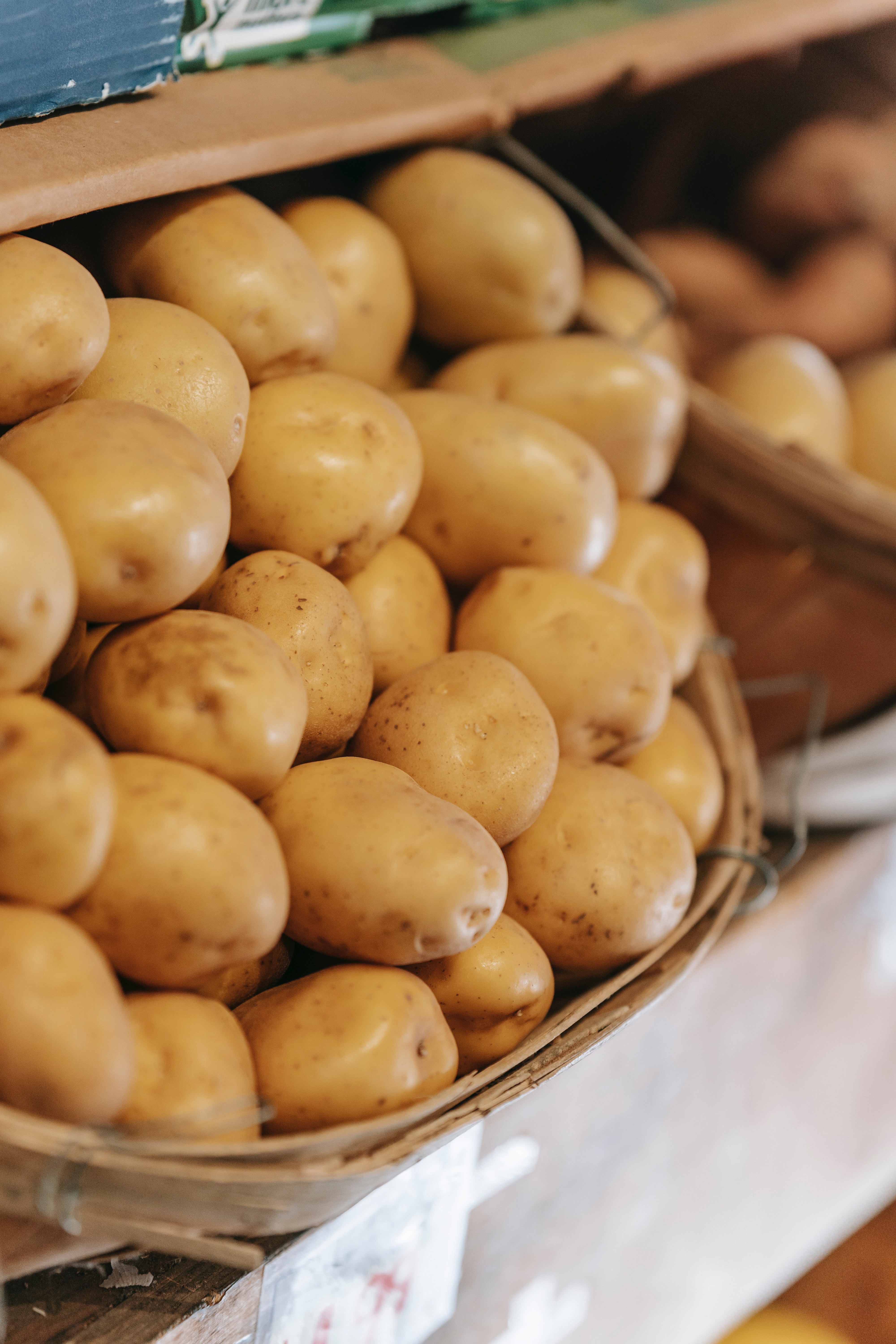
Taro
Energy: 594 kJ (142 kcal)/ Carbohydrates: 34.6 g Sugars: 0.49/ Dietary fiber; 5.1 g Fat: 0.11 g/ Protein: 0.52 g /Vitamins: Quantity%DV†/ Thiamine (B1): 9%0.107 mg/ Riboflavin (B2): 2%0.028 mg/ Niacin (B3): 3%0.51 mg/ Pantothenic acid (B5): 7%0.336 mg/ Vitamin B6: 25%0.331 mg/ Folate (B9): 5%19 μg/ Vitamin C: 6%5 mg/ Vitamin D: 8%1.2 μg/ Vitamin E: 20%2.93 mg/ Minerals Quantity%DV† / Calcium: 2% 18 mg/ Iron: 6%0.72 mg/Magnesium:8%30 mg/ Manganese:21%0.449 mg/ Phosphorus:11%76 mg/ Potassium: 10%484 mg/ Zinc:3%0.27 mg
